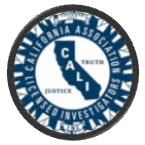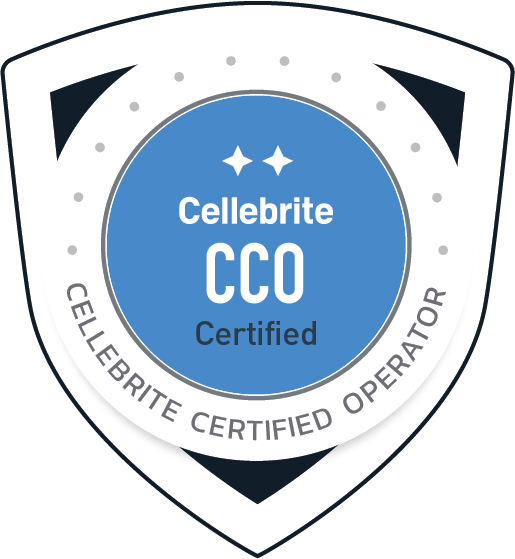Becoming a Private Investigator
Becoming a Private Investigator: Essential Skills and Steps to Launch Your Career
Ever dreamt of becoming a private eye, solving mysteries and uncovering secrets? If so, a career as a private investigator might be the perfect fit for you. This blog post will guide you through the exciting world of private investigation, covering everything from the role of a private investigator to mastering investigative techniques, legal and ethical considerations, and the career prospects and financial outlook for aspiring sleuths.
Key Takeaways
Explore the unique skill set and personal attributes needed to become a successful private investigator.
Understand daily duties, specializations within the field, educational foundations, licensing laws and more.
Gain insight into job opportunities for private investigators as well as factors that influence income potential.
Exploring the Role of a Private Investigator
Private investigators, often referred to as private detectives, serve a vital function in case resolution and providing services to individuals, businesses, and government agencies. They are independent civilian investigators hired to conduct various tasks, including:
Surveillance
Document research
Interviews
Background checks
Missing persons searches
Process serving
Criminal investigations
Undercover investigations
Private investigators often have access to public record databases containing driving records and criminal records.
To thrive as a private investigator, one needs a distinctive skill set and personal attributes. Some of the key skills and attributes include:
Outstanding verbal and written communication abilities for conducting interviews, collaborating with law enforcement personnel, and presenting evidence in court.
Excellent problem-solving aptitude and decision-making capabilities.
Critical thinking skills to analyze information and draw conclusions.
Patience and self-direction to handle long hours and challenging situations.
Initiative to take the lead in investigations and follow up on leads.
Computer proficiency to conduct online research and use investigative software.
Clerical competencies for organizing and managing case files.
These skills and attributes are highly beneficial for prospective private investigators seeking a successful career in this field.
The Daily Grind: Typical Duties of a Private Detective
The everyday tasks of a private detective are diverse and demanding. They generally perform an array of duties such as background checks, surveillance, and missing persons searches, depending on their area of specialization. To effectively carry out their responsibilities, private investigators must acquire expertise in surveillance techniques, accident scene reconstruction methods, and strategies for collecting evidence and information.
Beyond daily tasks, private detectives also need to be proficient in using a variety of tools to record their investigations. Undercover investigators, for instance, often utilize hidden cameras and recorders to gather and preserve crucial evidence.
Specializations Within the Field
In the field of private investigation, private investigators specialize in diverse areas of investigation, depending on their interests and expertise. Some examples of specializations include corporate investigations, insurance fraud, or criminal defense. Corporate investigators, for instance, focus on antifraud work, loss prevention, internal investigations of employee misconduct, protection of intellectual property and trade secrets, antipiracy, copyright infringement investigations, due diligence investigations, and computer forensics work.
The role of an undercover investigator can also vary depending on the specific case or assignment. For example, in economic investigations, an undercover investigator may provide information on competitors, security advice, special security services, criminal investigations, and profile polygraph tests. In workman’s compensation investigations, undercover investigators may be employed to investigate allegations of abuse and monitor the alleged injured party, using hidden cameras and recorders to document evidence that can later be presented in court or to the client who commissioned the investigation.
Pathways to Becoming a Licensed Private Investigator
The process of becoming a licensed private investigator usually entails a mix of educational, licensing, and experience prerequisites. Here are the steps to become a licensed private investigator:
Obtain a high school diploma or GED certificate. Some employers may prefer candidates with an associate or bachelor’s degree in criminal justice, criminal law, criminology, or a related field.
Gain relevant experience in law enforcement or investigations.
Complete any required formal education or training programs.
Apply for and obtain official licensing to comply with the standards set by numerous states.
Complete specific training for legal practice.
By following these steps and obtaining a certified legal investigator certification, you can become a licensed private investigator.
Requirements for licensure vary depending on the state and typically involve meeting certain educational and professional work experience criteria, followed by passing an examination. For example, to obtain a private investigator license in Canada, a minimum of 50 hours of basic training is required, which can be acquired from accredited sources such as universities, colleges, or private agencies licensed to administer the course. Although certification is not mandatory for private investigators, it may be beneficial in order to validate their expertise and understanding.
Educational Foundations: From High School Diploma to Bachelor's Degree
Employers commonly expect private investigator candidates to hold a high school diploma or GED certificate. However, in certain situations, an associate or bachelor’s degree in fields such as:
Criminal justice
Criminal law
Criminology
Political science
A related discipline may be favored. Programs in criminal justice, criminal law, or criminology may be particularly beneficial for those looking to acquire foundational knowledge and skills in the field of private investigation.
A criminal justice degree program can provide aspiring private investigators with valuable knowledge and experience. Courses in such programs may include:
Foundations of Criminal Justice Systems
Theories of Crime Causation
Introduction to Criminal Law
Introduction to Law Enforcement
Criminology
Corrections
Forensic Science
Constitutional Law
Criminal Investigation
These programs help to equip future private investigators with the necessary skills and knowledge to excel in their chosen career, including obtaining a professional certified investigator certification.
Navigating Licensing Laws
Licensing laws for private investigators differ from one state or country to another, necessitating aspiring PIs to study and comply with local regulations. In the United States, licensing requirements differ from state to state, ranging from no state license being necessary to the need for multiple years of experience and licensing-related training classes and testing. In the United Kingdom, private investigators typically need to possess a license issued by the Security Industry Authority (SIA).
To maintain their private investigator’s license, private investigators in the United States must comply with the following requirements:
Licensing requirements of their state
Adherence to all business regulations
Staying abreast of laws and regulations
Pursuing continuing education and professional development
It is essential for private investigators to be well-versed in the specific privacy laws of the state or country where they are conducting investigations and to ensure that they adhere to them.
Gaining Practical Experience
Practical experience can be accrued through internships, apprenticeships, or past work in fields such as law enforcement, military, or criminal justice. Experience in legal, law enforcement, or military fields is advantageous for individuals looking to pursue a career in private investigation. Potential internship opportunities for aspiring private investigators include ICS World, Indeed, and Nathan’s Investigations.
Apprenticeship programs, such as the Investigative Academy, are also available for private investigators. Work experience in the military or law enforcement can be beneficial for a career in private investigation, as it provides:
Transferable skills
Knowledge of procedures
Understanding of security and safety
A network of contacts
Mastering Investigative Techniques
Private investigators need proficiency in various investigative techniques to fulfill their duties effectively. They must be well-versed in the use of technology, such as computers, GPS, and surveillance equipment, to gather information and evidence. Moreover, private investigators must have excellent interviewing skills and evidence collection techniques, as these play a crucial role in building strong cases and solving complex problems.
To ensure effective surveillance, private investigators must be skilled in the following areas:
Blending in
Passive surveillance
Physical surveillance
Electronic surveillance
Audio and video surveillance
Map research and profiling
Sticking to public places
Keeping detailed notes
Digital surveillance
These skills, along with knowledge of the law and ethical considerations, will help private investigators excel in their profession.
Technology and Surveillance Mastery
Computer literacy and proficiency in the utilization of technology are essential for private investigators. Some of the technologies used in private investigation include:
Computers
Drones for aerial surveillance
GPS tracking devices
Hidden cameras and audio recording devices
Specialized software and hardware for data analysis
Voice recording technology
These technologies play a crucial role in the work of many private investigators, including those working at private investigation firms.
In addition to mastering technology, private investigators must also be proficient in various surveillance techniques. They frequently employ surveillance technology for performing background checks, evidence collection via cameras and lenses, covert monitoring of locations, and digital investigations for gathering information from the online realm.
Mastery of such technology and techniques is crucial for success in the field of private investigation.
The Art of Interviewing and Evidence Collection
Effective interviewing and evidence collection skills are crucial for private investigators to build strong cases and solve complex problems. Some best practices for interviewing include:
Preparation through researching the case and gathering relevant information
Establishing rapport and being polite to create a comfortable environment
Initiating with simple questions
Actively listening and attentively
Maintaining a poker face
Repeating any questionable or confusing information back to the interviewee
Transitioning from closed to open-ended questions
Taking the time to build trust and rapport
Private investigators employ a variety of methods to collect and preserve evidence, including:
Surveillance
Interviews
Research
Maintaining a detailed log of all evidence with relevant information such as dates, times, and locations
Furthermore, they take care to ensure evidence is gathered in a discreet and legally admissible manner.
Legal and Ethical Considerations in Private Investigation
Legal and ethical considerations significantly impact private investigation. Private investigators must possess a comprehensive understanding of local, state, and federal law. They must also be knowledgeable about criminal records and court records to conduct thorough investigations while staying within legal boundaries. In addition, private investigators must adhere to privacy laws and ethical guidelines to protect clients’ rights and maintain professional integrity.
Understanding the legal parameters and constraints is essential to ensure that criminal or privacy laws are not being infringed upon and to prevent evidence collected unlawfully from being rejected by a court or even leading to prosecution. Private investigators must be cognizant of the laws and regulations that govern their operations and ensure that they comply with them.
Keeping It Legal: Understanding Criminal Records and Court Records
Private investigators must be knowledgeable about criminal records and court records to conduct thorough investigations while staying within legal boundaries. Criminal records are a list of arrests and convictions, while court records comprise case files, which encompass a docket sheet and all documents filed in a case. When conducting background checks, private investigators should be cognizant of the right to privacy, compliance with surveillance laws, and professional conduct.
Private investigators can legally access criminal and court records through their authorized access to non-public records. They may also have the ability to access certain DMV information depending on the state regulations. However, they must abide by the law and are not permitted to enter private property without permission or access records that require a subpoena.
Privacy Laws and Ethical Boundaries
Adhering to privacy laws and ethical boundaries is of paramount importance for private investigators in order to guarantee that their investigations are conducted in a lawful and ethical manner. In the United States, private investigators must adhere to a range of compliance laws and regulations. The federal government does not regulate the private surveillance industry, and state-level regulation differs. There is no single US privacy law, so data protection requirements depend on the type of information collected and its use.
Private investigators who breach privacy laws may face legal repercussions, loss of licensure, and harm to their professional reputation. To avoid such consequences, they must ensure that their methods and techniques do not contravene an individual’s privacy rights, obtain necessary permissions, and adhere to restrictions on surveillance activities.
Career Prospects and Financial Outlook
Private investigators have a wide range of job opportunities, self-employment options, and factors influencing income. Some possible career paths include working for insurance companies, law firms, and private detective agencies, or pursuing self-employment options. The factors that influence a private investigator’s income include location, education, certifications, work experience, and specialization.
The national average annual wage for a private investigator is $57,100, according to Forbes. However, the specific salary can be higher or lower depending on the region and other factors such as education, experience, and certifications. In addition to traditional employment opportunities, private investigators can also pursue self-employment, which can provide additional flexibility and control over their careers.
What to Expect: Job Opportunities and Self-Employment
Various sectors such as insurance companies, law firms, and private detective agencies offer job opportunities for private investigators. In the insurance industry, private investigators may work as insurance investigators, which typically require a high school education or GED for employment with insurance companies. Private investigators can also provide services to law firms, such as conducting interviews, searching records, providing pertinent information, and aiding in criminal defense investigations.
For those interested in self-employment, private investigators can seek out a mentor, advertise their services, register as self-employed, network, and cultivate a strong reputation. Establishing a private investigation business usually entails planning the firm, forming a legal entity, meeting licensing conditions, taking courses and acquiring a license, ascertaining a specialty, procuring equipment, acquiring insurance, creating a marketing plan, applying for licenses and permits, and adhering to regulations.
Earnings Potential: Factors That Influence Income
Several factors like location, education, certifications, work experience, and specialization can influence a private investigator’s income. The national average annual wage for a private investigator is $57,100, according to Forbes. However, the specific salary can be higher or lower depending on the region and other factors such as education, experience, and certifications.
Certifications can improve a private investigator’s earning potential in the following ways:
Certified private investigators typically receive higher salaries than those without certifications. Certifications can open up new job opportunities. Certifications can generate new sources of income for private investigators. Moreover, completing postsecondary education and obtaining a degree in a related field can also help to boost earning potential in this profession.
Summary
In conclusion, becoming a private investigator presents an exciting and rewarding career path, offering a variety of job opportunities, self-employment options, and factors that influence income. With the right education, experience, certification, and adherence to legal and ethical considerations, aspiring private investigators can build a successful career in this thrilling field. So, don your trench coat and fedora, and get ready to uncover the secrets of the world as a private investigator.
Frequently Asked Questions
How much do private investigators charge?
On average, private investigators charge between $50 and $200 per hour for services like background checks and surveillance operations.
Why would someone hire private investigator?
Hiring a private investigator ensures thorough investigations to obtain necessary information when making well-informed decisions, such as for potential partners, employees, or investors.
Are private investigators worth it?
Private investigators can be a valuable resource in certain situations where more comprehensive investigations are needed. They can help uncover essential information to solve complex legal matters, but the cost should be weighed against the potential benefits of hiring one.
What is the main purpose of a private investigator?
A private investigator is an individual who investigates crimes, verifies backgrounds and statements, finds missing persons, and investigates computer crimes in order to secure information about legal, financial, and personal matters.
What are the typical duties of a private investigator?
Private investigators typically conduct background checks, surveillance, missing persons searches, process serving and criminal investigations.








